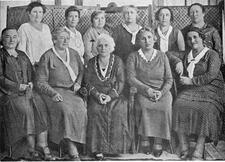Jewish History: Palestine
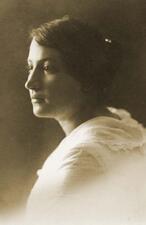
Sarah Aaronsohn
A leading spy for the Nili ring during World War I, Sarah Aaronsohn fought to free Palestine from Turkish rule and withstood torture for her ideals; she committed suicide after arrest by Turkish authorities and was later described as a Jewish Joan of Arc. The semi-military role Sarah carved for herself, her activity, and her voluntary death made her an icon and a model of a new “Hebrew” femininity.
Ruth Aliav-Klüger
Ruth Aliav-Klüger was the only woman among the early members of Mosad le-Aliyah Bet, the “illegal” immigration branch of the underground paramilitary organization Haganah that smuggled Jews out of Europe and into Palestine during World War II.

Architects in Palestine: 1920-1948
The mass immigration from Europe after 1933 brought many architects to Palestine, amongst whom were a number of women. For these women, being an architect meant total devotion to the profession.

Mirra Burovsky-Eitingon
Mirra Burovsky was the first Jewish actress to star in the mainstream Russian theater. Her stormy life and career brought her to center stage of Jewish cultural, intellectual, and social ferment in Tsarist and revolutionary Russia, Weimar Germany, and mandatory Palestine. Her third marriage, to psychoanalytist Max Eitingon, and the career of her son Yuli Khariton, “the father of the Soviet atomic bomb,” created the background for a continuing espionage controversy.

Hannah Floretta Cohen
Hannah Floretta Cohen was the first woman president of Britain’s traditionally male Jewish Board of Guardians for Jewish Poor Relief. She also promoted many other Jewish and non-Jewish charitable organizations to promote women's education, to benefit the sick and the elderly, and to encourage investment in the Palestine Mandate, through her public speaking, financial expertise, and administrative skills.
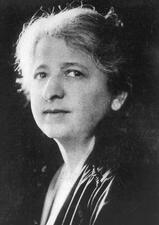
Mary Fels
Mary Fels used her wealth and her talents to further the Zionist cause, arguing passionately for a Jewish state and helping create both settlements and industry in Israel. Both Fels and her husband, a successful soap manufacturer, felt their wealth gave them a responsibility to reform capitalism and use their money for philanthropy.

Flora Benenson Solomon
Flora Benenson Solomon’s deep commitments to welfare and Zionism traversed geographical boundaries and social groups. From her efforts to improve the lives of Jewish and Arab communities in Palestine to the her work on behalf of garment workers in England, Solomon maintained an unwavering commitment to Zionism, which acted as a sustainer of Jewish identity in England.
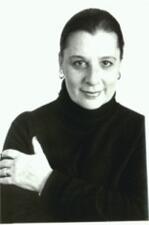
Blu Greenberg
Blu Greenberg is known as the mother of Orthodox feminism and is author of On Women and Judaism: A view from Tradition. She coined the phrase “Where there’s a rabbinic will, there’s a halakhic way,” demanding that rabbis find systemic solutions to help women who feel trapped by aspects of halakhah. Greenberg is a fierce advocate for agunot, women trapped in unwanted marriages.
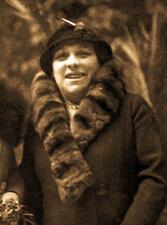
Annie Edith Landau
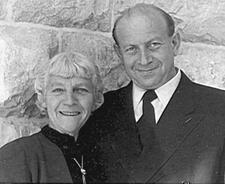
Bertha Landsman
Bertha Landsman dedicated her life to nursing, becoming one of the generation of giants who laid the foundation of the nursing profession in Palestine. She worked with Jewish, Christian, and Muslim women, persuading them to abandon folk superstition in favor of “correct knowledge and information,” and also taught nursing to local women students.
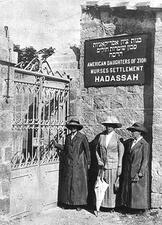
Rae D. Landy
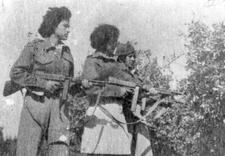
Lehi (Lohamei Herut Yisrael)
Lohamei Herut Yisrael (Lehi) was an underground Zionist extremist organization active between 1940 and 1949, during which it forcefully opposed the British Mandatory government and Palestinian Arab opponents to a Jewish state. Women participated in most areas of Lehi’s activity, from carrying out military actions to propaganda production.
Lotta Levensohn
Judith Berlin Lieberman
Sarah Lishansky
A politically active nurse and midwife, Sarah Lishansky used her career to treat and care for workers in the Yishuv during the Second Aliyah.
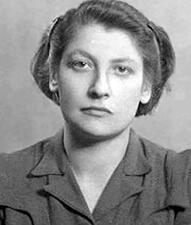
Zivia Lubetkin
Zivia Lubetkin was an important member of the underground resistance movement in Poland during World War II, and later an active member of the United Kibbutz Movement in Palestine.
Rabbi Ben-Zion Meir Hai Ouziel
Rabbi Ben-Zion Hai Ouziel was the Sephardic chief rabbi of Israel. Ouziel believed women could vote and be elected, serve as judges, use birth control for health reasons, and inherit property. He proposed a marriage formula that would prevent women from becoming agunot (“chained”).
Peace Movement in the United States
Throughout the twentieth century, Jewish women played a major role in American peace organizations and movements. Jewish women have also been in prominent roles advocating for peace between Israel and Palestine, both in the Knesset and with private organizations.
Peace Movements in Israel
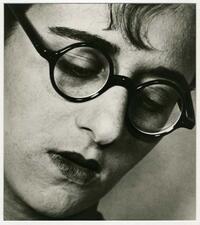
Photography in Palestine and Israel: 1900-Present Day
Although women photographers long struggled for recognition and appreciation in Palestine and Israel, in recent years awareness of their roles and contributions to photograph has increased. The activity of women photographers who focus on gender issues has increased dramatically, while female curators and academics are gaining new perspectives on Jewish female photographers, re-evaluating their role in the development of photography in Israel.
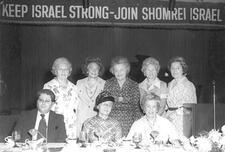
Religious Zionist Movements in Palestine
Religious Zionism, distinguished from the secular Zionists by its religious nature and from the ultra-Orthodox community by its Zionism, consisted of two major movements in the Yishuv: the Mizrachi and the Ha-Po’el ha-Mizrachi, a trade union. Women created their own organizations within these movements but distinguished themselves from the men through their support of women and their interests.
